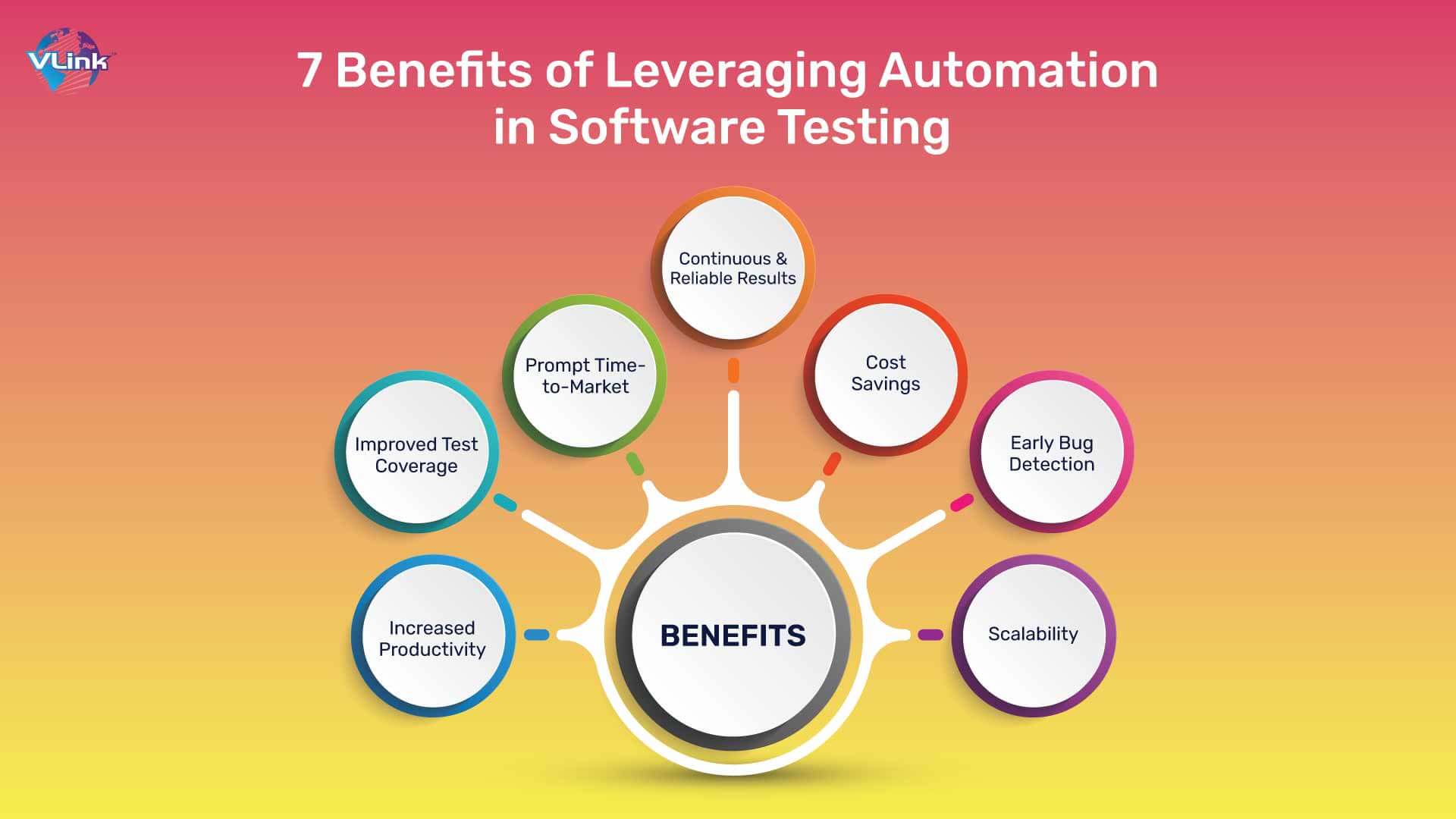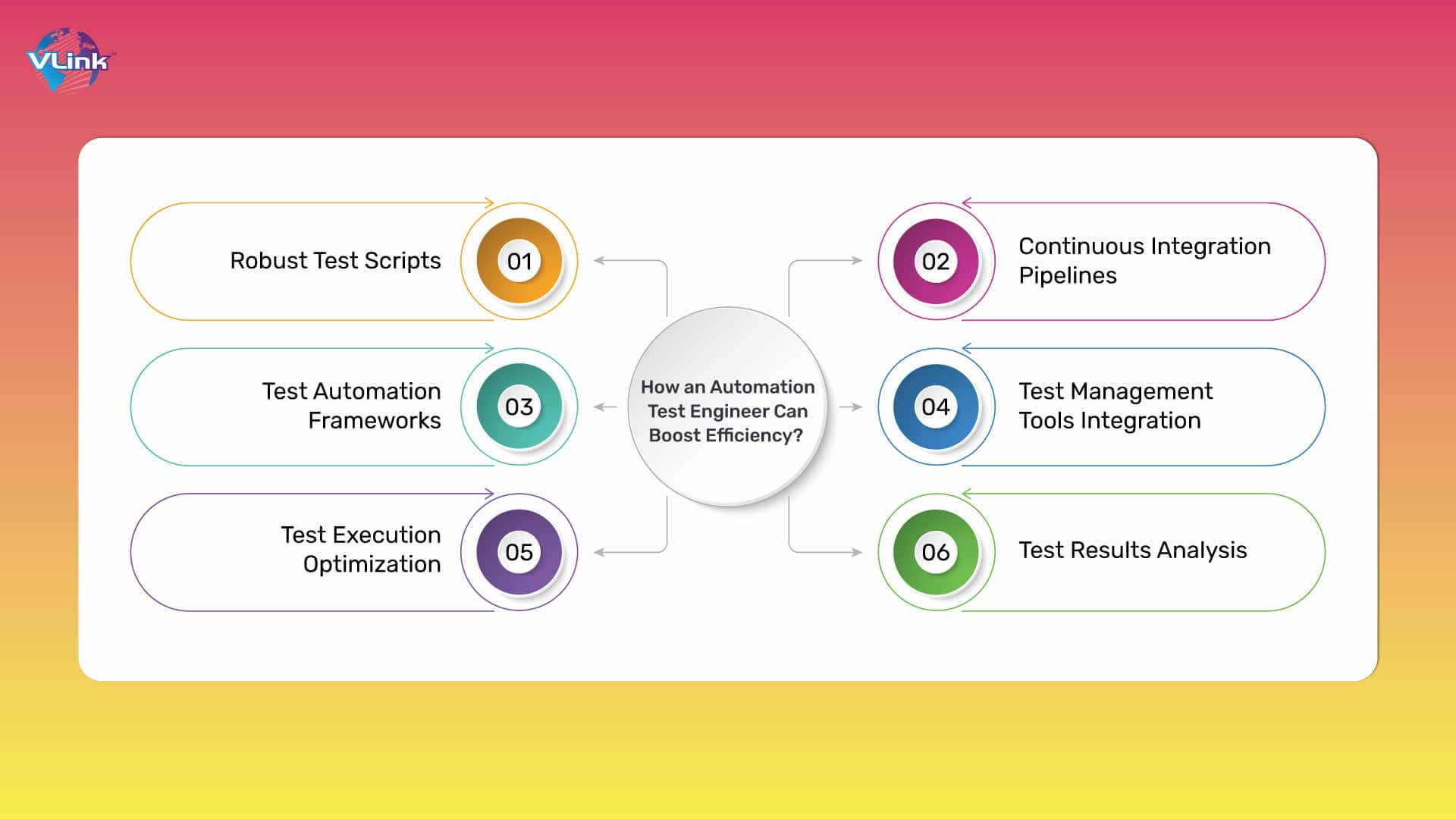Have you ever gone automatic for your software testing?
If you have not, then you are probably missing out on some compelling reasons why automation needs to be on your to-do list.
But! You know who can help you get there? The answer is automation test engineer!
We will tell you different ways an automation test engineer can help you get a tremendous amount of quality and useful software using automation.
Let us dive in and explore some effective ways to revolutionize your development processes with automation!
The Current Popularity of Automation in Software Testing
Automation is changing the software product development game. Now more than ever, organizations are looking to go all in on automation.
With the breakneck pace of software delivery today, and the complexity of applications ever increasing, you cannot meet the demands of QA through manual testing alone.
As a result, automation has now become a strategic imperative. Companies must automate horribly mundane, time-consuming yet essential tasks – if for no other purpose than to deploy with the velocity of a tech startup yet still deliver Tesla-like quality.
Test automation helps businesses run repetitive and time-consuming test cases, increasing testing coverage, speeding feedback loops, and overall efficiency.
Additionally, test automation allows teams to find bugs earlier in the development process, reducing both the effort and cost of bug removal.
The popularity of automation in software testing is not just a fad—it drives innovation, productivity, and seamless user experiences.
As the pace of digital transformation continues to quicken, software testing automation remains an indispensable mainstay for enterprises large and small alike, and one that will keep shaping the future of the development of software.
7 Benefits of Leveraging Automation in Software Testing

Now that you know why businesses are leveraging automation in software testing, let us dig deeper into the benefits of automation testing.
There are many but here we will discuss the top benefits you must be aware of:
- Increased Productivity
Automation increases software testing efficiency by taking over repetitive and time-consuming tasks that would otherwise require significant human effort.
With automated test case execution and result validation, as well as reporting mechanisms, testers can invest their time and effort in more intelligent and insightful tasks that require human intervention.
This means a faster testing cadence and a more productive test team, overall.
At the same time, automation makes parallel testing possible, working in multiple environments and configurations simultaneously, reducing resource use and diminishing test duration.
- Improved Test Coverage
Automation enables testers to successfully achieve comprehensive test coverage by executing a vast array of test scenarios across diverse platforms, browsers, and devices.
Unlike manual testing, which is often constrained by time and resource limitations, automated tests can be executed repeatedly without fatigue or oversight, ensuring comprehensive validation of software functionality under a broad range of conditions.
This expanded test coverage helps expose hidden defects and ensure that the software performs reliably across diverse user environments ultimately maintaining overall user satisfaction and user loyalty.

- Prompt Time-to-Market
The software development lifecycle becomes faster by automation, shortening the testing phase and creating a faster loop by iterating. Now, this is not humanly possible.
Automated tests can easily execute as part of the continuous integration/continuous delivery (CI/CD) pipeline, which allows automated regression testing and immediate feedback about a code change once it has made.
This allows errors to be found, addressed, and resolved in minutes.
The result is that you can get to the market in less time, use new market opportunities faster and maintain a competitive edge in a rapidly accelerating digital landscape.
- Continuous & Reliable Results
Automation ensures consistency and reliability of testing results by executing test scripts exactly as instructed.
Automated tests follow predefined steps and criteria religiously, thereby cutting down the risk of human mistakes or misinterpretation.
This consistency of testing results improves trust in the accuracy of testing outcomes and allows stakeholders to make informed decisions based on reliable data.
Additionally, automated tests generate detailed logs and reports, providing clear documentation of test execution and results for audit and compliance purposes.
- Cost Savings
Even though there are initial costs involved in automating with new tools and Infrastructure, they do not really matter compared to the long-term savings that are realized through adopting such a system.
The cost of human labor can be reduced significantly by automation.
Organizations can see heightened productivity in the long run and lower labor costs because they improve efficiency by automating repetitive tasks and making better use of resources.
Additionally, since it lowers the risk of costly defects slipping into production, the financial impact caused by post-release bug fixes, customer support and reputation damage can also be significantly reduced.
- Early Bug Detection
Automation streamlines the ability to catch defects early by embedding testing into the development process from the very beginning.
Automated tests can be triggered by every code commit, giving prompt feedback on changes’ quality. This active approach to testing lets developers catch and correct issues quickly, before errors pile up and develop into bigger problems.
The use of automated tests will also allow the implementation of comprehensive test suites that can validate a wide range of scenarios giving confidence in the software functionality while reducing the likelihood of any regression issues.
- Scalability
Automation provides unequalled scalability in testing, allowing organizations to evolve and expand their testing capacity as needed to handle evolving project requirements and demands. Automated tests can be grown as needed to handle growing test suites, covering more test depth and breadth without needing to increase manual effort in the same proportion.
Automation also enhances the reuse of test scripts and frameworks across projects, greatly saving time and effort associated with test development and maintenance.
This ability to scale allows organizations to rapidly adjust as business needs change, scaling their testing efforts when necessary, and maintaining consistently high levels of productivity and quality across a wide range of software projects and initiatives.
How an Automation Test Engineer Can Boost Efficiency?

Now, it is time to know why you should hire automation test engineer for your software testing and how they can boost your overall productivity along the way:
- Robust Test Scripts
Automation Test Engineers specialize in making automated test scripts more robust to accommodate a variety of scenarios. This is certainly because they are well-equipped with experience, skills, and knowledge about different types of software testing services.
They take great care with their scripts, so that they replicate a user's interactions and verify the functionality of software across different use cases.
They also make sure these tests are resilient and adaptable by building in techniques for data-driven testing and error handling.
Not only do Automation Test Engineers prioritize code reusability and maintainability, but they write scripts in a way that it becomes modular so that it is easy to update and maintain the test scripts as the application becomes more complex.
By designing scripts meticulously, they optimize efficiency by ensuring minimal redundancy and maximum test coverage. This means the software will be thoroughly tested under various conditions.
- Continuous Integration Pipelines
They play a pivotal role in integrating automated tests into Continuous Integration (CI) pipelines to support agile development practices.
They configure CI servers to automatically trigger test execution when code is committed to ensure that changes are validated promptly and consistently.
Even as part of the build and deployment pipelines, these automated tests create a continuous feedback loop that allows the development cycle to move ever faster and the product to improve in quality overall.
Collaborating closely with developers and DevOps teams, the Automation Test Engineers work to optimize CI workflows, identify opportunities for parallel testing and streamline test execution even further, ensuring improved efficiency and responsiveness in the development process.
- Test Automation Frameworks
Automation Test Engineers use test automation frameworks to create and run automated tests in a standardized, structured manner.
These frameworks provide a structured environment in which automated testing scripts can be built.
They standardize automated testing functions such as setup, execution and reporting results.
They also provide libraries, utilities, and design patterns for building and managing test automation that are scalable, maintainable, and robust.
The Automation Test Engineer’s job is to select and apply the right test automation framework to their testing project scripts to cut repetitive tasks and execute them, ensuring high-speed development and low cost.
Also, Automation Test Engineers contribute to the continued development and enhancement of the framework. They spread their knowledge and collectively drive testing practices to achieve desired results in the long term.
- Test Management Tools Integration
Using test management tools, Automation Test Engineers combine automatic tests into one system to make test planning, execution, and reporting much more effective.
They use APIs (Application Programming Interface) and plugins to connect automatic test scripts with test management systems smoothly. This guarantees that the testing process can be entirely automated end to end.
In fact, they establish a complete testing lifecycle by associating automatic test scripts and manual human executed designs or scripts with the practices done in software design.
The dashboard and reports are also configured by our Automation Test Engineers to ensure stakeholders have real-time insights into test status, progress, and quality metrics, enabling the most informed decision-making and proactive risk management.
- Test Execution Optimization
Automated test engineers optimize the test execution environment, thus achieving more reliable tests.
They collaborate with infrastructure teams, to provide or create the required data and configuration dependencies for experiments.
Utilizing infrastructure as code (IaC) principles and cloud solutions, they automate the provisioning and scaling of test environments. Compared with manual effort and infrastructure overhead this can mean significantly less time spent waiting for things to happen.
Automation test engineers also keep a watchful eye over the health and performance of the test environment. They even develop strategies for testing environmental isolation and reproducibility, thereby ensuring continuity and reliability in test results across different environments.
- Test Results Analysis
By analyzing test results and performance metrics, Automation Test Engineers draw actionable conclusions. Also, they use test data parameters to encourage continuous improvement of testing practices.
They write and maintain custom reports and dashboards that visualize the data and metrics collected by tests. This enables stake holders to evaluate a software build's stability quality.
By analyzing test results for trends and patterns, they identify areas for test process and test coverage optimization and improvement.
Automation Test Engineers define quality gates, thresholds, and acceptance criteria in collaboration with cross-functional teams, based on business objectives and KPIs.
They implement advanced testing techniques, leveraging test automation tools and frameworks to effectively support the virtualization of load testing, stress testing, and security testing, allowing them to ensure comprehensive validation of software performance, and resilience.
Hire Automation Test Engineer with VLink
So, do you understand why you need both automation and automation test engineers?
Now that you do, your next step should be to get in touch with the dedicated team at VLink.
We have 18 years of experience and can help you quickly hire automation test engineers as well as avail QA and software services. We understand the unique needs of different companies of all sizes and offer customized solutions to match.
Just tell us what you need, and we will quickly provide you with a list of the top 3% pre-vetted candidates.
So, contact VLink today and let us help you get the perfect automation test engineer on your team in as little as 48 hours.
Frequently Asked Questions
There are several types of automation testing. Some common types of automation testing are- unit testing, integration testing, regression testing, functional testing, performance testing and acceptance testing.
All these types focus on a particular area of software quality assurance – ensuring that efficiency, reliability, and functionality persist throughout both various stages of the development lifecycle.
One should have proficient programming skills in Java, Python, and other programming languages. Understanding Automated Testing Tools such as Selenium or Appium and how they are applied throughout the development process is also necessary. S/he should also have a strong analytical and problem-solving ability and an ability to focus on the details.
A case of test automation is Selenium WebDriver, which can be used to automate the testing of web applications.
Using Selenium, testers develop scripts that imitate user interactions such as clicking buttons, entering text, and verifying page elements.
Its use makes testing a lot more efficient and accurate; the functioning and performance of web applications can also be assured.













